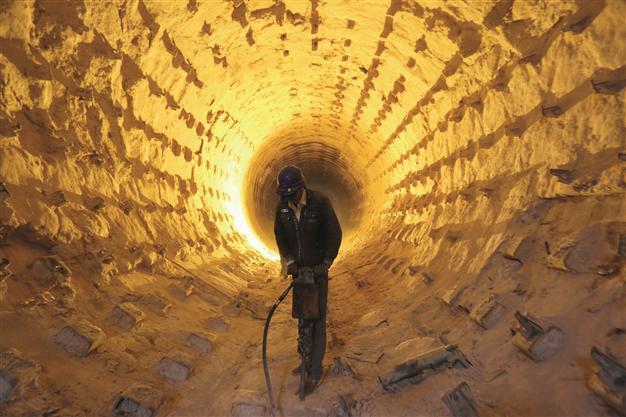Local cement firms eye assets after huge merger
ISTANBUL - Reuters

Turkish cement companies are eager to take part in international business deals due to limits on the local sector. REUTERS photo
Turkish cement makers are interested in acquisition opportunities that could arise from the merger of Holcim of Switzerland and France’s Lafarge to create the world’s biggest cement maker.Holcim said last week it would buy Lafarge, creating a giant with combined annual sales of $44 billion. The two firms, which operate in 90 countries, expect to have to sell 5 billion euros ($6.9 billion) of assets to win over competition regulations.
Cement companies have already started buying some of these assets, including Colombia’s largest cement maker, Argos, which said it will pay 50 million euros for a French Guiana company owned by Lafarge and Holcim. Competition laws in Turkey, the world’s fifth biggest cement producer, don’t allow firms to achieve a market share of more than 25 percent, encouraging Turkish companies to look for growth opportunities abroad.
Acquisition steps
Turkey’s army pension fund Oyak said it had started talks with international investment banks for possible acquisitions, and had $3 billion in cash allocated for opportunities arising from the merger.
Oyak owns five listed cement companies, namely Adana Çimento , Mardin Çimento, Bolu Çimento, Ünye Çimento and Aslan Çimento.
Limak Holding’s cement group chief executive Gültekin Aksuyek said it had already started working on a budget allocation for these opportunities, as it seeks to become Turkey’s largest cement producer.
“We are the third largest player in the Turkish cement sector now, holding a 13 percent market share. We aim to become the largest player by the end of 2016 by buying at least three production facilities,” he said.
Conglomerate Sabancı Holding, which holds cement firms Akçansa and Çimsa, is looking at growth through acquisitions, and has said it plans to spend 1-1.5 billion Turkish lira ($467-$700 million) on such investments.
The asset sales are not expected to take place before 2015, Burgan Invest analyst Ece Mandacı said, adding that two thirds of the expected sales will be in Europe.
Mandacı said Turkish companies were most likely to be interested in assets in Germany.
“Akçansa has a partnership with Heidelberg, so it’s likely that competition rules will not allow an acquisition there for them, but Cimsa and other companies may be interested,” she said.
Akçansa is a joint venture of Sabancı Holding and HeidelbergCement.
















